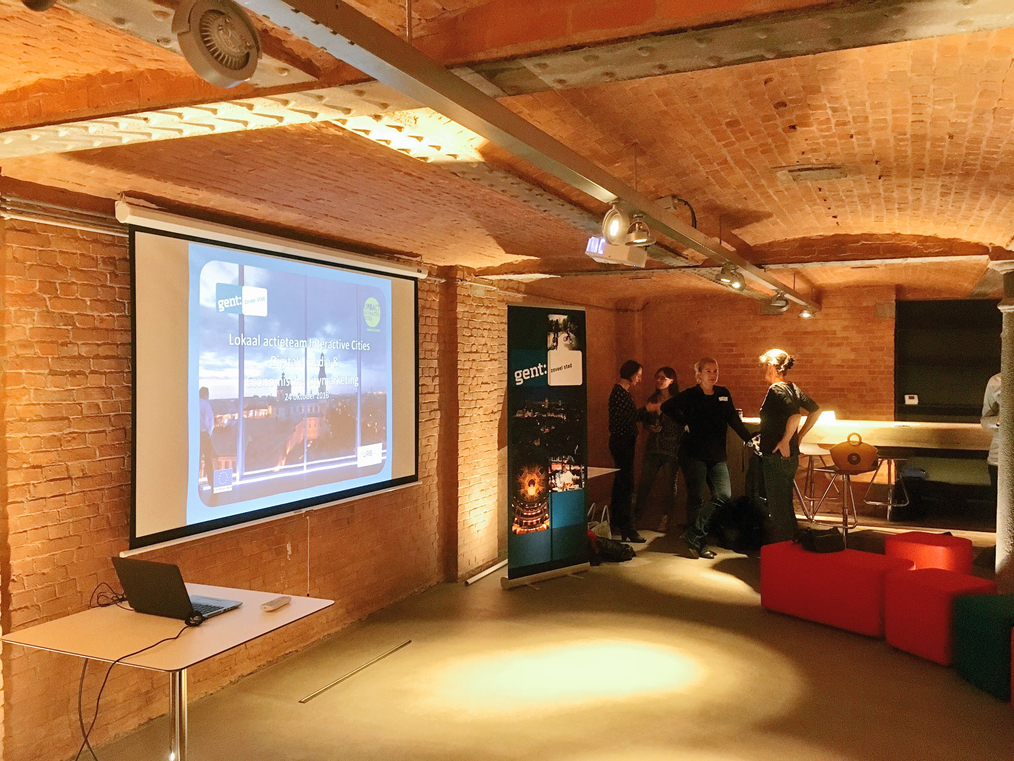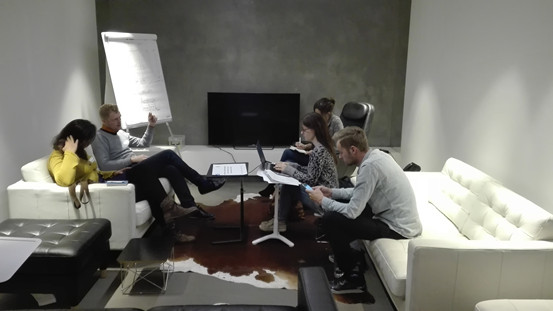How Ghent took his local stakeholders to the future and back
Edited on
02 October 2018On the 24th of October 2016, the Urbact Local Support Group took place in Ghent. The main goal was to brainstorm about the possibilities new digital media could bring for the City of Ghent as for the economic stakeholders. Therefore, we took them to the future, and back.
The Urbact Local Support Group in Ghent consisted out of a brainstorm with stakeholders who have a (technical) background in digital communication.
The central question was of the afternoon was: “How can we, the economic stakeholders*, share and communicate our information, and our assets? (* Knowledge institutions, umbrella organisations, companies, and government).
The Future and back
In order to find an answer on this question, we asked three sub questions related to the present, the future and back, which were:
- What digital media and digital tools do you use at present, or very soon (maximum time span 2 years) to communicate and share your information and assets?
- Imagine, it is 2030 of 2100. What digital media and digital tools do you use now to communicate and share your information and assets?
- Based on your findings of the future, can you find a common base in these predictions? And, what can we do today to evolve in this direction?
The stakeholders were divided into four groups of 4 – 5 people. There were three different rounds to answer the different questions. In each round they had approximately fifteen minutes to brainstorm within the small subgroups, and afterwards every group had exactly 1 minute each to present the main outcomes of the brainstorm session. Timing was very strict, and needed to be followed precisely.
The reason we took the stakeholders to the future, is because participants tend to think within known frameworks and possibilities. When you take away possible boundaries, thanks to time travelling, they can think more easily out of the box. Afterwards, once they have freewheeled completely, they can think with an open mind on the possibilities in the present.
 |  |
The outcomes
The outcomes of the brainstorm sessions were recorded on Facebook live, and can be seen here (in Dutch) :
Answers 1st question: live video
Answers 2nd question: : live video
Answers 3th question: : live video
The most important output of the brainstorm, that we will include, as far as possible), in the next phase of the local support group of Interactive Cities was:
- 1) The need for a community portal (central: transparency – open – sharing)
- Being able to share best practices, questions,… (also with and about the output of other European cities of Interactive Cities)
- And, this way Interactive Cities continues to live between the different Local Support Groups
- 2) The need for a data portal / link data journalism – there is a need for user friendly open data
- 3) The importance to look into the possibilities of virtual reality
- 4)To not forget the importance of personal communication/interaction
- 5) To facilitate (international) collaboration: Speakers, interactive sessions, webinars at the local and transnational meetings
- 6)Expand and diversify the group of stakeholders
- 7)Make ideas concrete, specific – designate local lead partners
The feedback of the ULG was very positive, they liked the methodology, and are looking forward to the next, more concrete phase of the Interactive Cities project.
Submitted by fvirgilio on
